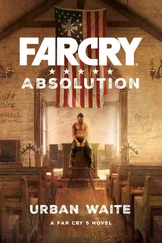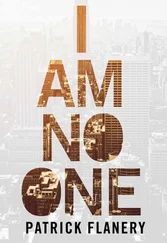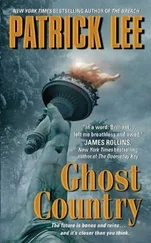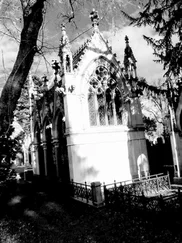The work at the Cape Record kept you ever busier as the weeks and months progressed. You had no particular ‘beat’, such as crime or education or labour, the kinds of topics where the real news was happening. Instead, your editors held you down in the pool of general news reporters, assigned in large part to cover what the press has always called ‘human interest stories’: a housewife’s award-winning roses grown in memory of her husband; a blanket-drive for the poor and homeless ahead of the winter storms; the first-hand account of a teenage girl who was the sole survivor of a boating accident off Noordhoek.
Most days you stayed late to finish stories and arrived before dawn on others. You began to work weekends and holidays when the news editor bullied you into doing more than you should have, made leering comments about you and said he thought of you like a daughter. You stayed late not because of him but because of the work, hoping that if you proved your ability you would be allowed to cover more interesting news.
When you did have time off you saw Peter and Ilse. Sometimes you went to their house for dinner, or else you invited them to your apartment where, as inept a cook as your mother, you made eggs and toast smothered with chutney and melted cheese. You had no other friends apart from someone you only identify as ‘X’, to whom you spoke on the phone at least once a week. I assume this must have been a lover from university, someone still in Grahamstown, perhaps even a professor, a man like your father who could not keep his hands off his students.
‘X’ suggested you start jogging as a way of relaxing and building your strength. In the evenings, at least three days a week, you ran through residential streets in Observatory and Rondebosch. One night a drunk who might have stumbled down from the mountain forests tackled you against the dark side of a building just around the corner from your apartment. He was large but so intoxicated that you easily repelled him, kneeing him in the groin and pulling the fingers back on his left hand until they broke, crushing the digits into a lumpy pulp that you squeezed like an orange. You ran home as he shouted for the police, as if the law should have been protecting him instead of you.
Though you marvelled at your own strength, after the encounter with the drunk you only ran during the day, in the mornings before going to work. You did push-ups and sit-ups and kept a log of how many each day. You maintained a meticulous record of everything you ate, as though you were training for the Olympics.
You bought a scale and weighed yourself each morning.
One evening you helped Peter distribute stacks of pamphlets throughout the city, hoping that you would not be caught. If the security police had discovered this notebook the scant details you sketched of that single evening might have been the only clue that you were involved in anything illicit. Your words are so circumspect that at times I question whether they are yours and not the work of someone else, copying your hand, using you as his puppet.
All these things you never told us when they were happening, knowing we would have implored you to be careful, to look after yourself, not to do anything foolish. We could never come up with the words that you wanted to hear. I remember a Sunday in the autumn of that year when you condescended to come home for lunch. It was the first time I had seen you since your move back to the city. When I asked if I could come to your apartment you made excuses — it was a mess, you said, and it was not the kind of place I would be comfortable. By then Mark was living in Johannesburg, so the three of us sat in the dining room, eating. Your father asked if you had made many friends at the paper.
‘I met one of your old students, Ilse. She’s a freelancer.’
William, I remember, tried to look unfazed. ‘Oh, yes? How is she?’ he asked, looking at his plate.
‘Married,’ you said. I knew what it meant and wondered at the time if you did as well. I hastened the end of the meal, and sent you on your way.
I wonder, after all, if I hate you for every secret you kept from me.
*
While some of your colleagues were detained and arrested, held without trial, charged with offences both preposterous and petty, you remained as untouched by the chaos as most of us were, safe in our white streets. You never moved beyond the general reporting of the ‘human interest story’, the inconsequential, while others threw themselves into clouds of tear gas, struggling to tell as much truth as they could report under the ever more stringent restrictions and regulations imposed by the government against the press. Some were fined, others spent months and even years in detention, a few died. Others still were lucky to escape with vandalism of their property and anonymous threats against their lives. Your editors, whose own lives and families were threatened, rewrote stories so that they obscured more than they revealed. Those of us who read such news were left having to put together the pieces, to discern through the silences and obfuscations (the surreal avowals that, for instance, the details and purpose of a gathering could not be disclosed even though one had nonetheless occurred) that a peaceful demonstration had taken place on Adderley Street and been met with the force of police bullets.
And yet you, Laura, went on writing your stories about high-achieving child prodigies and exceptional housewives. Perhaps , you wrote in the notebook, they will eventually trust me to do something more important .
Yet no promotion, no greater freedom ever came. You met with Peter and Ilse and their circle of friends and associates. In private, you compiled further notes on Rick Turner, and when you had exhausted that topic, finding no answers and not knowing where else to turn in search of the truth, expanded your scope. I read it with horror: Unsolved deaths. Robert Smit. Rick Turner. Stephan Pretorius. Nora Boyce Pretorius . From an individual you shifted to a theme, became obsessed with the dead, whatever side they might be on.
But unlike Smit or Turner, whose deaths have remained, objectively, unsolved and unexplained, the deaths of your aunt and uncle had their day in court. A man confessed and was found guilty. Nonetheless, something about the resolution did not satisfy you, as if you intuited that the story of their deaths was only a cover, obscuring the real story, the one beneath and behind the cover story.
On the phone, you spoke with ‘X’ about your frustrations at the paper.
‘I want to do something more significant. They give me no latitude. If I come up with an idea, I have to get their approval first. Mostly they give my ideas to other reporters and leave me with news that doesn’t matter. I told them I wanted to write an in-depth investigative piece on the Turner murder and they laughed. It was old news, ancient history no one wanted to hear. I haven’t made them trust me.’
‘If it’s not working out perhaps you should quit,’ said ‘X’. ‘Find a more direct way to be involved. Go to work for one of the alternative papers. Get Ilse to make an introduction, to Grassroots or the New Nation or South . Perhaps the Record is too tame. We should have known they wouldn’t give someone like you a long enough lead.’
The following week you turned in your resignation to the Record , as if you had been waiting for the permission of that man, that former lover, a consent for you to slip from the back rows of safe respectability and slide into the orchestra pit, to take up your sticks and play.
Not knowing where else to turn, you went to Peter and Ilse and told them, ‘I’m ready. I want to do something more.’ Ilse took you in her arms and though you were still unsure of her, still felt that tickle of anger at the freedom with which she lived her life, expecting other people to clean up her messes, you believed that together the two of them pointed to the road you were destined to follow.
Читать дальше












